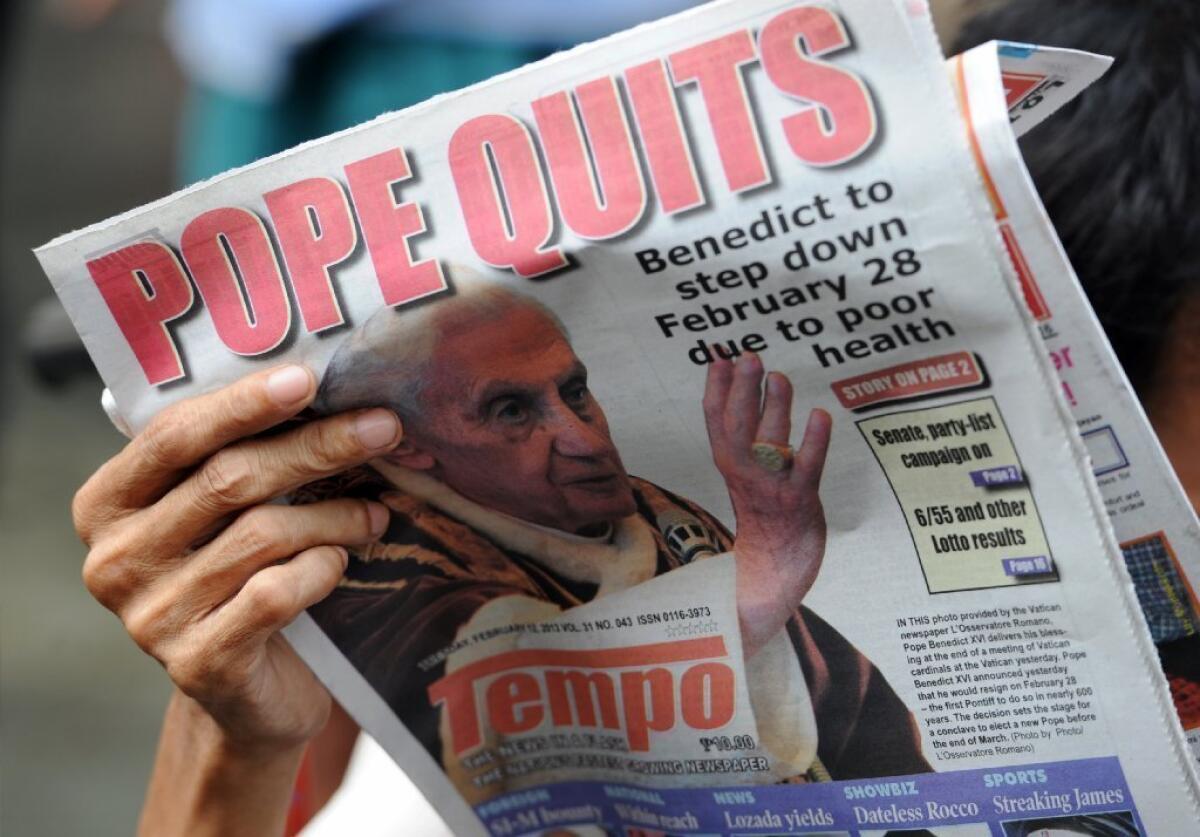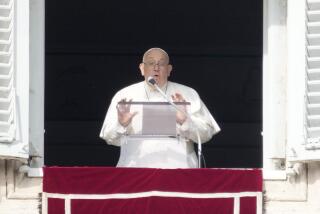Can secular journalists argue theology with the pope?

One of my least favorite pundits is the shrill and self-parodic conservative Washington Post blogger Jennifer Rubin. But Rubin had a point when she criticized “liberal media types” for lecturing the Roman Catholic Church “about the need, you know, to get with the modern world and stop all that fussing about abortion, contraception and women priests.”
Rubin asked: “ On what basis do secular journalists assert the authority to lecture a religion on its tenets? Imagine instructing rabbis to lighten up on the Ten Commandments or evangelicals to stop being so, you know, literal. And it is inconceivable media elites would urge imams to alter their views. Yet with Catholicism, secular elites’ presumptuousness knows no bounds.”
Rubin didn’t mention her employer by name, but the Washington Post’s editorial about the abdication of Pope Benedict XVI contained this criticism of the soon-to-be-ex-pontiff:
“The hallmark of Pope Benedict’s tenure, for better or for worse, was fierce resistance to [change]. He rejected calls by Catholic progressives for reconsideration of doctrines such as celibacy and the ban on women in the priesthood; at a time when acceptance of the rights of gays and lesbians is rapidly spreading across the world, he was outspoken in condemning homosexuality as “unnatural” and unacceptable.”
Put aside the fact that mandatory priestly celibacy is not a doctrine of Catholicism but a “discipline” that could be easily changed and one that is not imposed on Catholics of the Eastern churches in communion with Rome (or on married former Anglican priests who have “crossed the Tiber,” as they say in England). The Post editorial presumes to tell the Catholic Church how to interpret the texts and traditions of the faith when it comes to female priests and homosexuality.
As lawyers say, there’s a “standing” problem here. If the editorial writer doesn’t accept the tenets of Catholicism in the first place, he or she is on shaky ground arguing for a particular interpretation of those beliefs. The intellectually honest alternative is to write something like, “We believe that any religion whose theology allows for the exclusion of women from its priesthood is clearly in error, and we encourage our Catholic readers to become Episcopalians.” The Post editorial doesn’t do that.
There is no “standing” problem with editorializing against efforts by the Catholic or Mormon churches to oppose the legalization of same-sex civil marriage. Nor is it out of line for an editorial in a secular paper to analyze a pope’s leadership style or moral failings. (The Times’ editorial did both of those things.) But if you’re going to fault the church’s definition of Catholic marriage, you need to argue on the basis of a common assumption that there is such a thing.
Likewise, to contest the church’s argument against female priests – that Jesus was male and so must be the priest who represents him at Mass – you have to get in on the theological ground floor and accept the premise that there is such a thing as a priesthood -- not to mention a God to whom the priest prays. Dissident Catholics can do that; secular journalists can’t. Rubin is wrong about Chuck Hagel, but she’s right about that.
ALSO:
McManus: Tax reform that hits home
Science isn’t on the drug warriors’ side
More to Read
A cure for the common opinion
Get thought-provoking perspectives with our weekly newsletter.
You may occasionally receive promotional content from the Los Angeles Times.







